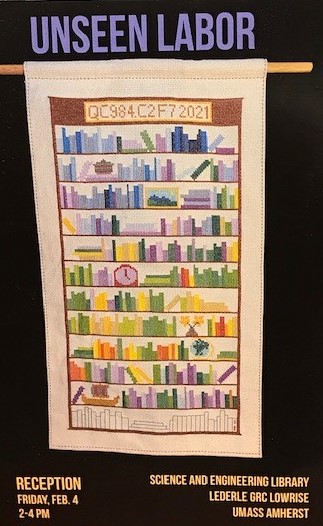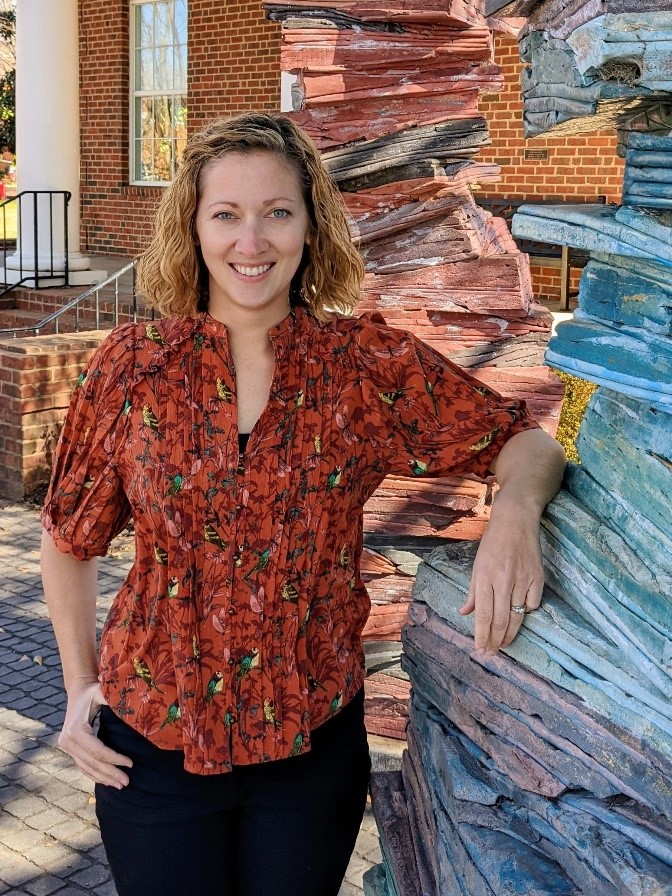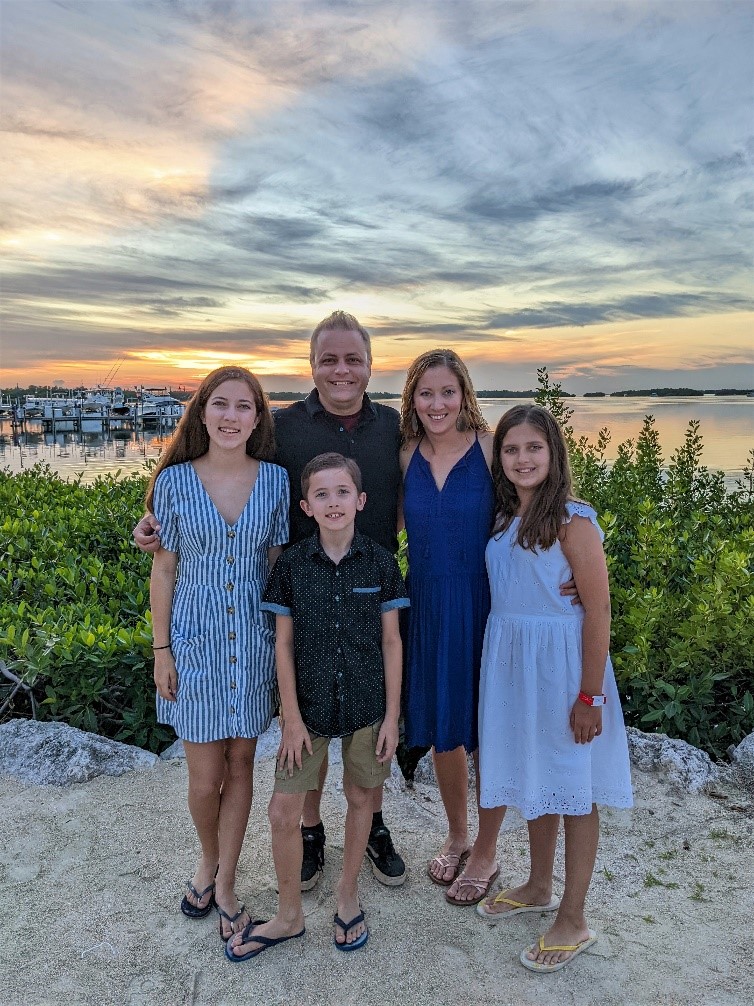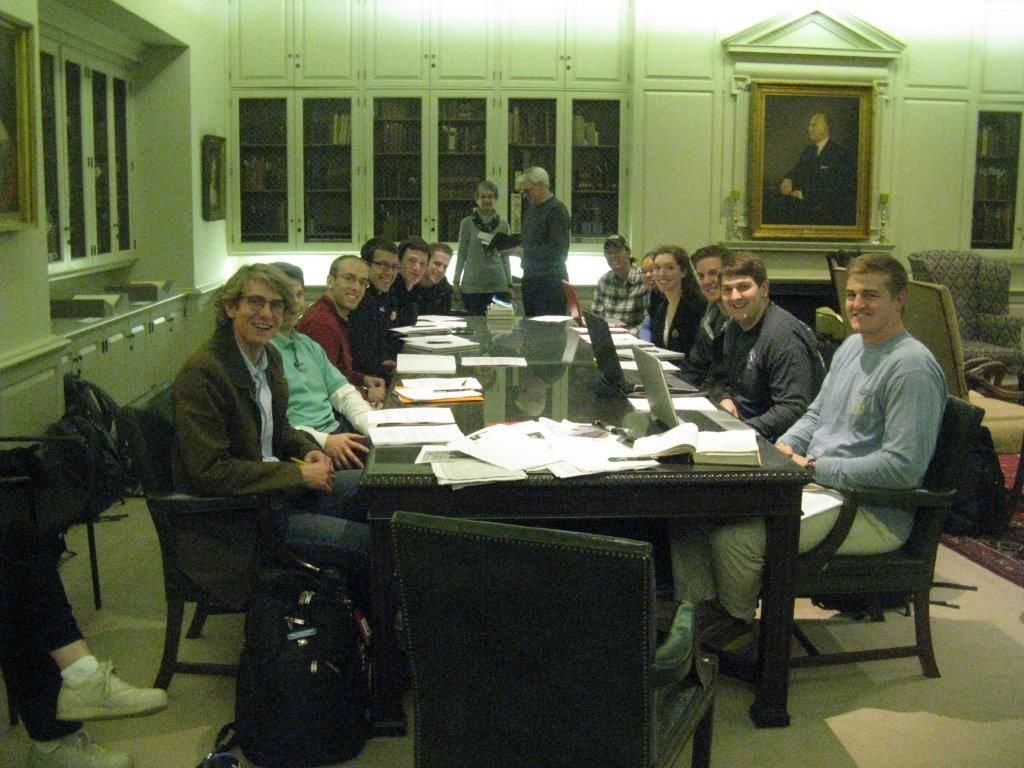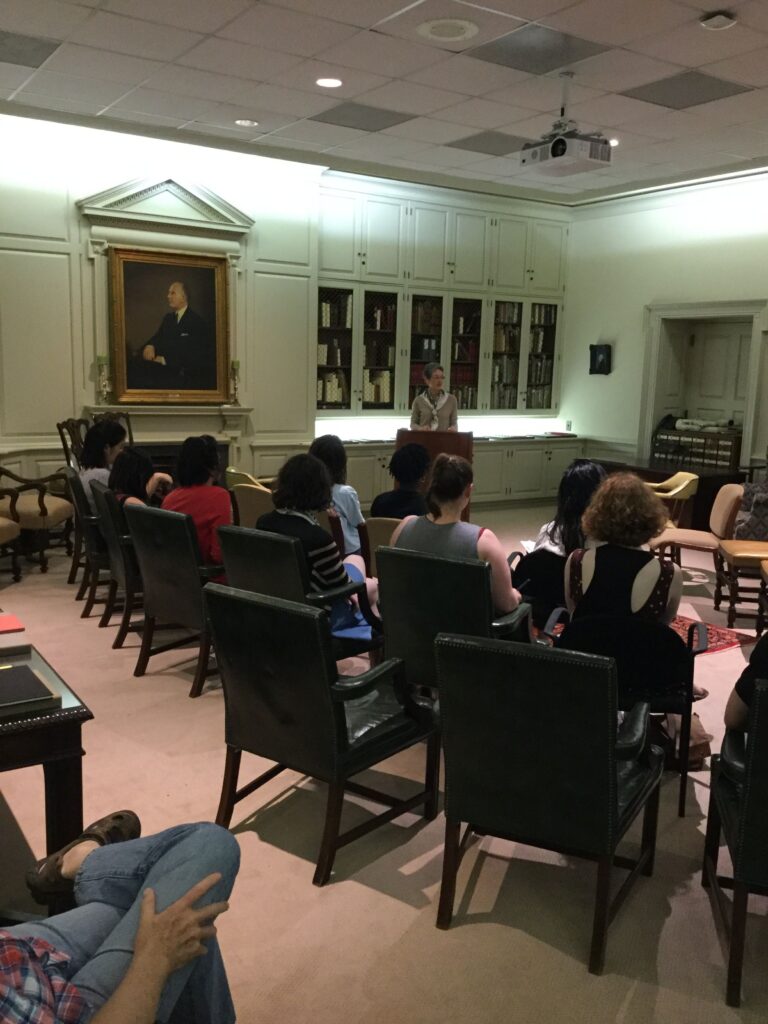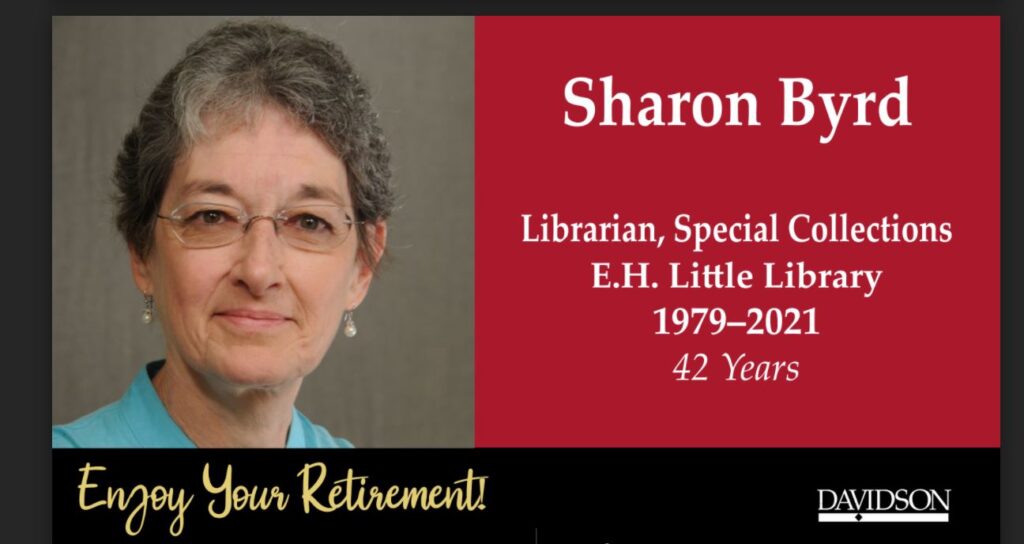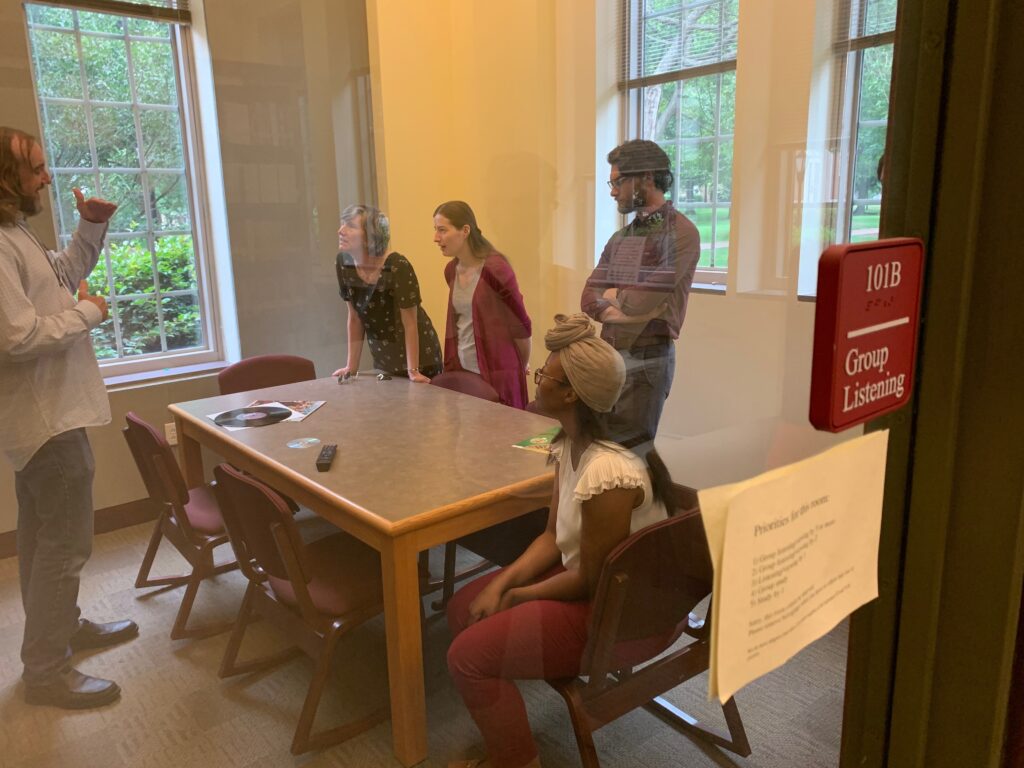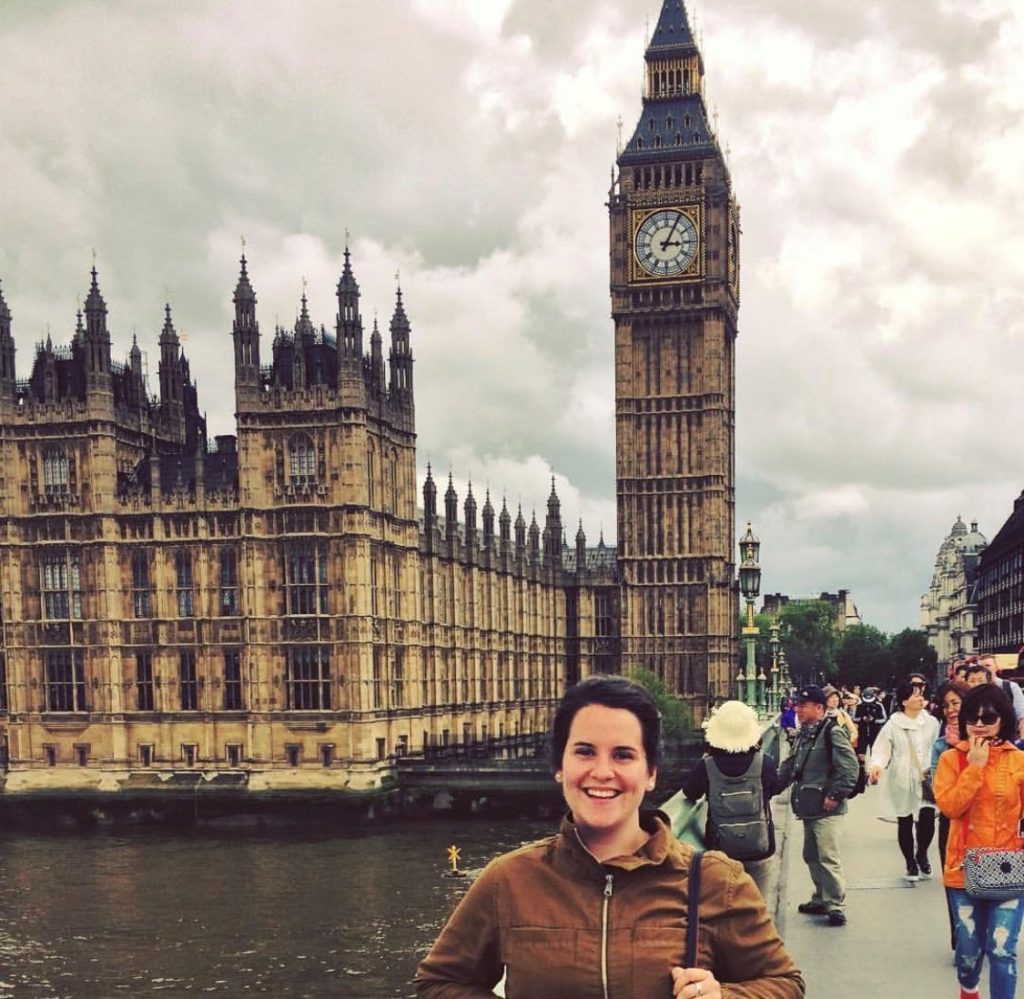At the end of my last blog post, I was stitching away as part of a project called “Unseen Labor” created by Ann Kardos at the University of Massachusetts in Amherst. Catalogers and metadata librarians were asked to create a needlework piece that represented their work and experiences in libraries during the pandemic. People from 20 states contributed to the project and there were even some international stitchers from Canada and the UK. In the Spring of 2022, the works were exhibited in the Science and Engineering Library at UMass. An exhibit catalog was also created where every piece is featured and the artist got to describe their work. I was lucky enough to visit the exhibit in person and see everyone’s incredible work.

Catalogers and metadata professionals often don’t get the chance to describe their work, or if they do, what they do is not well understood. When I talk about my cataloging work, I usually say that I am deconstructing an object (book, DVD, board game, etc.) into its smallest, most individualized parts. All those little bits are then stitched together (pun intended) using a metadata structure and standards. What you end up with is a digital, textual representation of the object which makes it more easily shared across the web. The better I am at reassembling the data and making it understandable to both computers and humans, the more likely people will find the item that they are looking for.
Here’s an example:
The book Painted with Thread: The Art of American Embroidery
Some of the pieces that describe this book are:
- Salem, Massachusetts
- Color illustrations
- Exhibitions
- Embroidery
On their own, any one of those words doesn’t have a whole lot of meaning. Put together, I have an exhibition in Salem, Massachusetts on embroidery which contains color illustrations. And there you have it! Making sense where there was none before.
This is what inspired my piece for the “Unseen Labor” exhibit. As I mentioned in my previous blog, I thought my needlework was non-existent before this project. But that wasn’t entirely true because I have been sewing for close to 20 years. I thought about what I do when I construct a garment and how it was very similar to what I do when I construct a metadata record. I start out with an idea or a picture or a sketch and I break it down into its individual pattern pieces. If you’ve ever seen a single pattern piece you know how it doesn’t look much like anything. I then stitch together (literally) my pieces using a set of skills and standards I’ve obtained and end up with a completed garment.

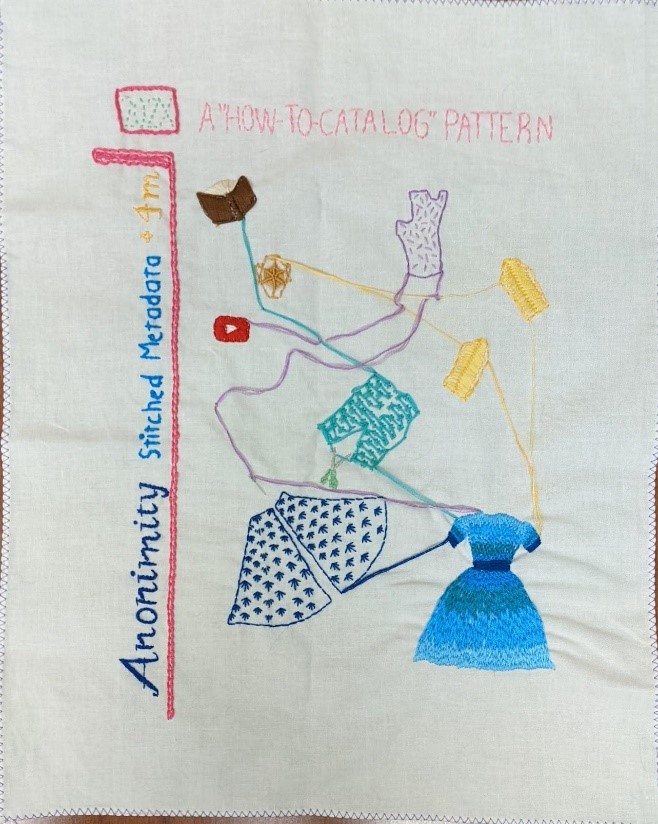
My embroidered work “A Pattern of Anonymity” is a convergence of the two: metadata and sewing. I used a 1960s era pattern packet I had as my guide when designing my piece. There is a book, a vase, and a streaming video to represent all the kinds of things that I have cataloged and how they are before the translation into metadata. The odd looking objects the original items are attached to represent the individual pieces of metadata or pattern pieces. I told you they didn’t look like much of anything. Once you start putting them together, you start to get an idea of what the final piece looks like. Is that a skirt with delicate detailing I’m seeing in the lower left corner? And once all the threads come together, ta-dah! A finished record/garment that is easily recognizable and discoverable.
I’ll end this post with a quote I came across while doing some research on stitching (yes, I had to research my project before beginning; I am a librarian after all):
That embroiderers do transform materials to produce sense – whole ranges of meanings – is invariably entirely overlooked.
–Rozsika Parker, The Subversive Stitch: Embroidery and the Making of the Feminine
Replace “embroiderers” with “catalogers and metadata professionals” in Rozsika Parker’s sentence and you’d still have an accurate statement. I hope the extraordinary works and words in the “Unseen Labor” exhibit bring to light the kind of sense-making cataloging and metadata librarians produce in an increasingly non-sensical world.
